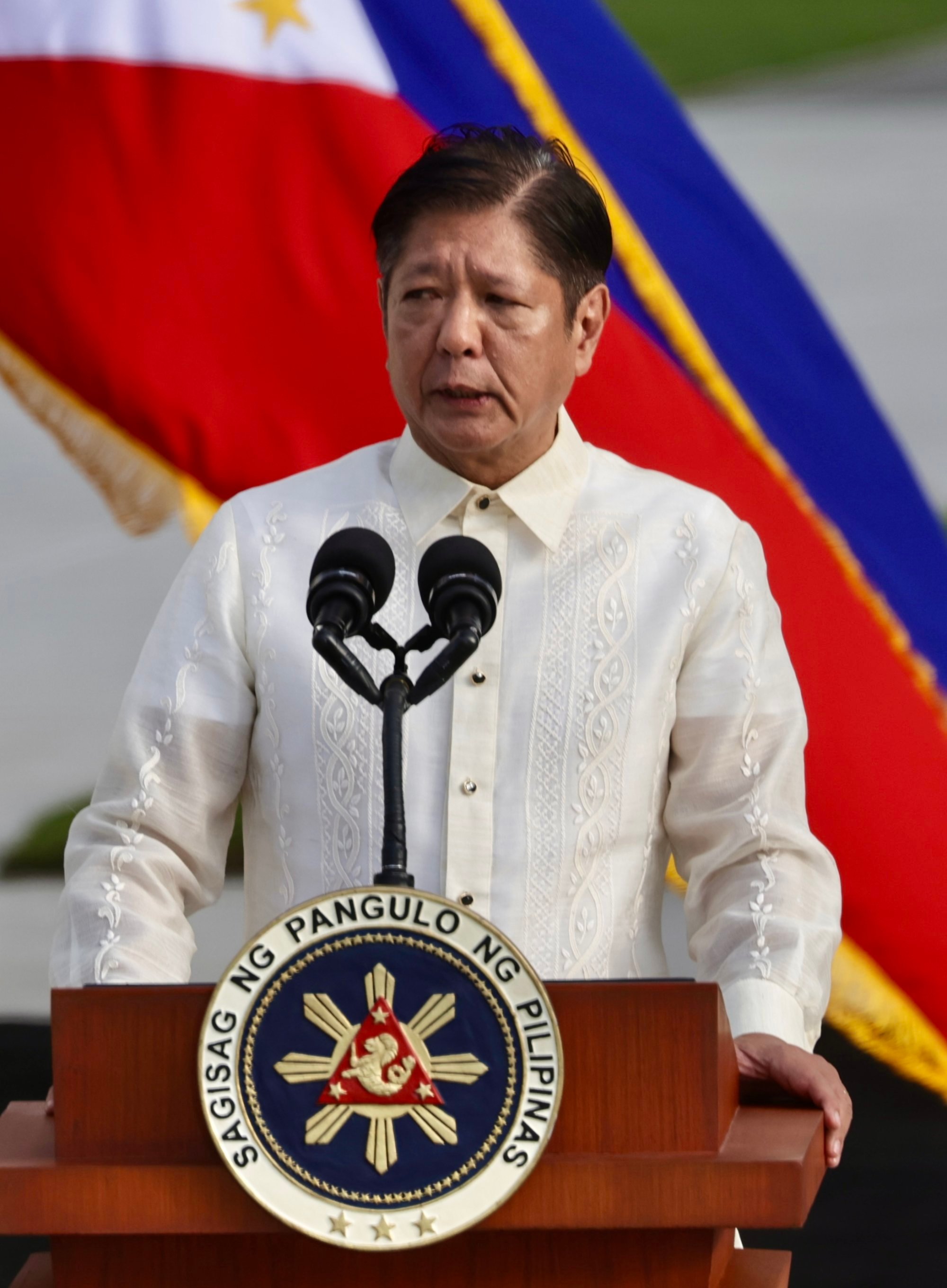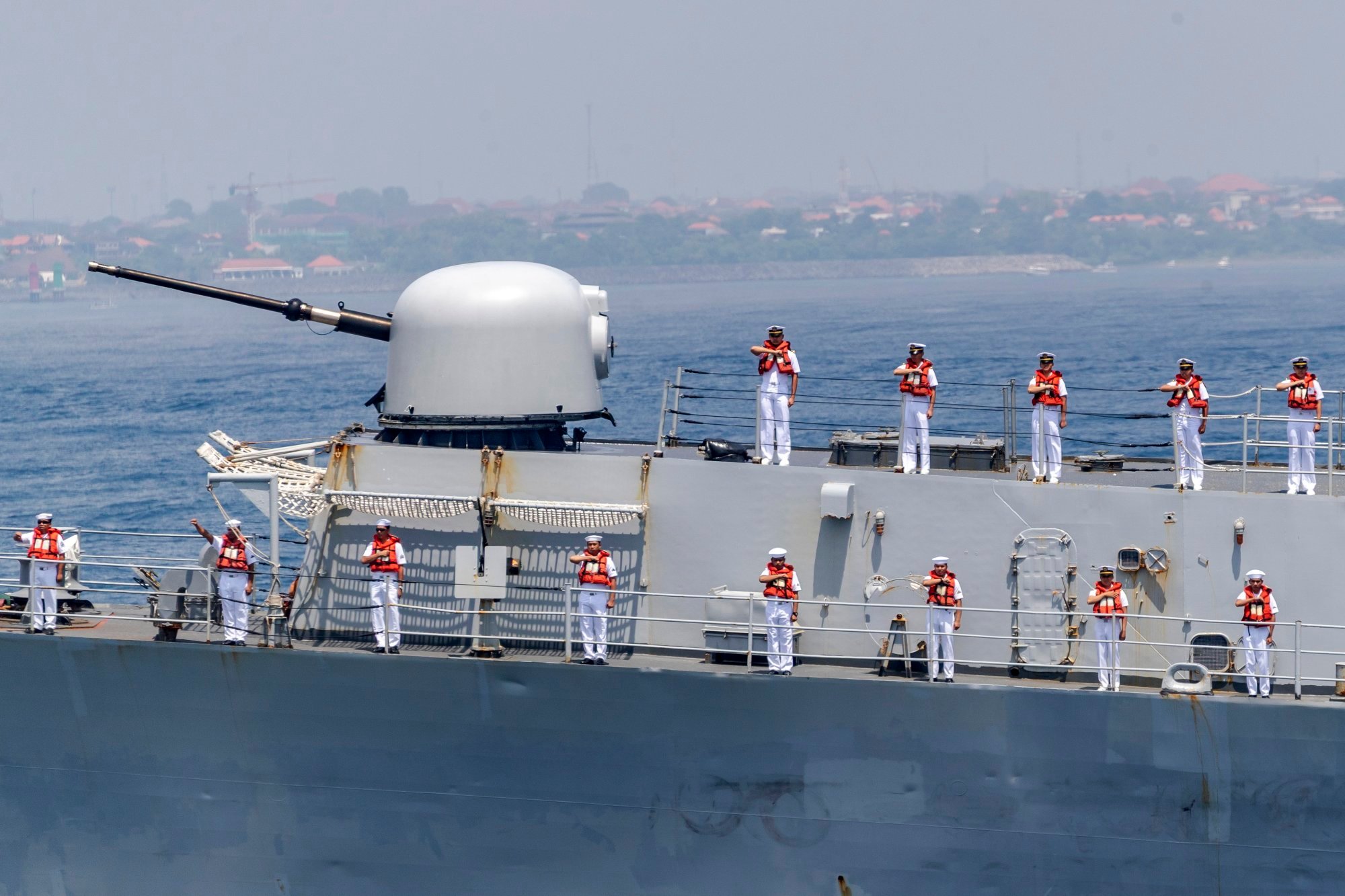Philippines' Cyber Defenses Under Fire: Claims of Chinese Attacks Expose Vulnerabilities
In a world where conflicts no longer play out solely on battlegrounds, the Philippines is facing an unseen yet equally perilous danger.
As cyberattacks have surged and authorities attribute them to Beijing, experts caution that the Southeast Asian country is rapidly running out of time to strengthen its cybersecurity measures.
The latest surge in cyberattacks focused on the military and governmental organizations within the Philippines. In February, officials from the Philippine military acknowledged discovering efforts to infiltrate their network systems. This followed assertions made by the cybersecurity organization Deep Web Konek, which stated that confidential information about both personal details and operations concerning military staff members had been leaked online. However, the military maintained that no critical data had actually been breached.
Previously, in January, the nation’s telecommunications authority disclosed that they had thwarted multiple cyberattack efforts originating from Chinese IP addresses. The department stated these assaults targeted various local governmental sites and electronic communication networks, even reaching as high as the Office of the President.

A representative from the Chinese embassy in Manila described the accusations as "extremely irresponsible," yet growing evidence has caused cyber security professionals to have significant doubts.
Dindo Manhit, who leads the Manila-based think tank Stratbase-ADR Institute, presented a grim outlook on future challenges during a security conference on Tuesday. He warned, "Malevolent entities, harnessing recent advances in artificial intelligence and the Internet of Things, are progressively excelling at executing complex cyber assaults."
He cautioned that such assaults present "substantial threats to vital infrastructures like telecommunications networks, financial institutions, and most crucially, governmental data repositories, potentially resulting in substantial interruptions within public services and economic activities."
President Ferdinand Marcos Jnr acknowledged the seriousness of the circumstances. At a Philippine military celebration in December, he characterized cybercrime as a "complicated, multidimensional, and occasionally undetectable" danger. He emphasized, "We no longer confront challenges limited to our borders or conventional battlefields." This statement underscored the necessity for an updated strategy towards safeguarding national security.
However, despite Marcos' powerful rhetoric, the Philippines' cybersecurity measures remain relatively underdeveloped The armed forces have progressed by focusing on establishing a cyber warfare division; however, specialists believe that the nation is still lagging behind when contrasted with nearby countries in this domain.
There remains a considerable distance before reaching the level of capability possessed by more cybersafe countries," Manhit stated to This Week in Asia. "However, the groundwork is being laid.
He referred to the National Cybersecurity Plan for 2023-2028 and expanding global collaborations as favorable advancements. Among these are the General Security of Military Information Agreement with the United States , which focuses on collaborative cyber security training, obtaining sophisticated monitoring technologies, and enforcing more rigorous access restrictions.
Retired General and cybersecurity specialist Jess Lomeda noted that although the Philippines possessed the essential "five pillars" of cybersecurity—legal measures, technological infrastructure, organizational structure, capacity building, and collaboration—the military’s cyber command might require approximately one year to adequately enhance its competencies.
Jan Chavez-Arceo, who holds a fellowship with the Philippine Council for Foreign Relations focusing on national security, concurred. She pointed out that by 2018, the Philippines had created cyber units across all branches of its armed forces and formed a "Cyber Command."
Filipino cyber warriors were "very skilled", said Chavez-Arceo, who is a reservist officer in the Philippine Army. But sustained investment in training and digital tools is still needed.

Among the key issues highlighted in his study titled "In Technology We Trust? The Challenge of Establishing a Cyberforce in the Philippines," Francis Domingo, an associate professor of international relations at the University of the Philippines, pointed out bureaucratic inefficiency, mutual distrust between governmental bodies, and inadequate cybersecurity training as major obstacles.
Domingo noted that current educational programs fail to incorporate military strategy and international relations into the examination of cyber issues in the Philippines, highlighting a prevailing strategic mindset that continues to emphasize traditional combat methods over digital security challenges.
Chavez-Arceo said this was "slowly changing", however, as senior defence leaders "have seen the impact of cyber threats on national security, economy, and social security and public safety".
"Cybersecurity incidents highlight vulnerabilities," Manhit told This Week in Asia. "They also push the country to adopt better strategies, invest in talent and implement stronger defences."
'Lip service'
Regarding the Philippines, cyber threats originating from China will remain a concern as long as Beijing continues to disregard its legal responsibilities pertaining to the South China Sea, according to Manhit.
He cautioned that China’s approach concerning the contested waters has expanded into cyberspace, potentially involving disinformation operations and external harmful influences, notably as elections draw near.
These concerns are not completely unjustified. During a recent session in the House of Representatives, journalist Niceforo Balbedina unveiled proof of an extensive Chinese-associated group comprising over 100 social media profiles. This network was found to be consistently sharing posts endorsing Vice-President Sara Duterte and denouncing President Marcos Jr. Additionally, these accounts alleged that the Philippines was entangled in a "proxy conflict" between the United States and China.
In the meantime, the Philippines is finding it difficult to build a proactive cyber defense unit for all military branches. The country also hasn’t determined how to strategically utilize this force to influence its diplomatic and military engagements, according to Domingo.
For Retired General Lomeda from the Philippines, Manila merely gives lip service to cybersecurity. According to him, cyber leadership roles frequently prioritize political ties rather than technical skills. This was illustrated by an attempt to appoint Senator Grace Poe to head the information and communications division following Secretary Ivan Uy’s departure in March. Lomeda characterized these actions as indicative of a system where political considerations take precedence over competence.
Chavez-Arceo cautioned that the Philippines faces significant risks due to its inadequate digital infrastructure and strategic position, making it an easy target for cyberattacks. She noted that China’s sophisticated cyber abilities are well-known, adding that the country “remains very susceptible.”
More Articles from SCMP
Within the Hong Kong Ballet's latest offering for senior citizens
A Hong Kong restaurant employee was detained following the discovery of a camera in the ladies' bathroom.
What insights does the China Islamic Association’s relabeling provide into Beijing’s assimilation efforts?
Meet Christina Ricci’s famous hairstylist spouse Mark Hampton: He accompanied the "Yellowjackets" actress when she received her star on the Hollywood Walk of Fame – and has collaborated with brands such as Hugo Boss.
The article initially appeared on the South China Morning Post (www.scmp.com), which is the premier source for news coverage of China and Asia.
Copyright © 2025. South China Morning Post Publishers Ltd. All rights reserved.





